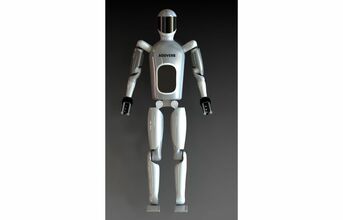
Addverb, a global pioneer in industrial robotics and warehouse automation, has announced its entry into humanoid robotics, with the launch of a next-generation humanoid robot slated for 2025. This marks a pivotal milestone in Addverb's growth, transitioning from fixed automation systems and mobile robots to the cutting-edge realm of humanoid technology.
Addverb's prior innovations include Trakr, India's first AI-powered quadruped robot capable of autonomous navigation and terrain adaptability, deployed for maintenance and security operations. The company's strategic partnership with Reliance, established in 2021, has further strengthened its technological advancements. Addverb will leverage the Jio AI Platform and 5G technology in collaboration with Reliance to develop and deploy its humanoid robot across various industries, including warehouses, defence, and healthcare.
The humanoid robot promises exceptional versatility and intelligence, processing vast multi-modal data from vision, audio, and touch inputs. It will utilise dynamic, self-learning algorithms to navigate complex environments, perform intricate tasks, and adapt seamlessly to evolving workflows.
Equipped with advanced GPU technology, energy-efficient actuators, and dual-arm capabilities, the humanoid will execute tasks requiring bipedal mobility across diverse terrains. Its integration of Visual and Language Action (VLA) technology ensures full autonomy in dynamic settings, making it suitable for parcel handling, sorting, assembly, quality inspection, and even disaster relief.
Sangeet Kumar, Co-Founder and CEO of Addverb, highlighted the company's vision, stating, "Our foray into humanoid robotics aims to eliminate '3D' jobs—those that are dull, dirty, and dangerous. By equipping our humanoids with integrated decision-making and human-like dexterity, we aim to redefine what robots can achieve in the most challenging environments."
He further added, "This initiative is not only about creating a world-class humanoid but also about fostering an ecosystem of supporting industries, just as we've done in warehouse automation. This step will enhance India's humanoid robot density and contribute to the global adoption of this transformative technology."
